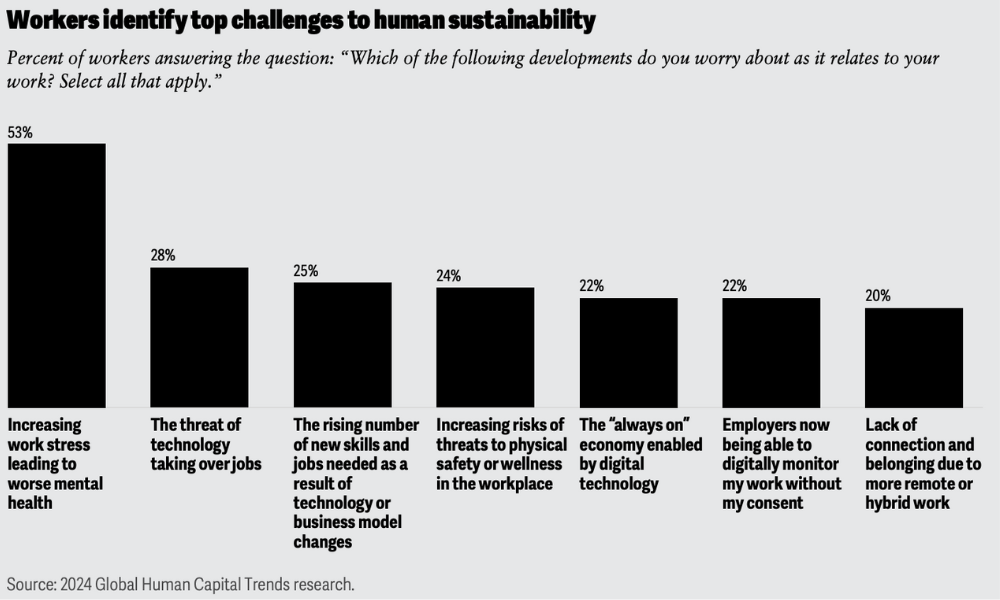
While most execs appreciate importance of valuing people, few leading the way

More than half of employees across the world have cited increasing work stress as a top challenge to human sustainability, according to a new report.
Deloitte's 2024 Global Human Capital Trends defined human sustainability as the "degree to which the organisation creates value for people as human beings."
This leaves them with greater health and well-being, stronger skills and greater employability, good jobs, opportunities for advancement, more equity, and heightened feelings of belonging and purpose, according to the report.
However, the report also found that 43% of employees feel that they were better off when they started in their organisation than they are today.

When it comes to trends that threaten human sustainability, increasing work stress leading to worse mental health tops the list with 53% of employees.
Other top challenges include the threat of technology taking over jobs and the rising number of new skills and jobs needed due to technology, according to the report.
Meanwhile, executives around the world recognise the importance of human sustainability, but lag when it comes to efforts related to them.
According to the report, 79% of executives surveyed in the Deloitte Global skills-based organisation research said their organisation has a responsibility to create value for workers as human beings and for society. Another 81% said human sustainability is very or critically important.
However, only 12% of executives say they're leading in this area, while 17% said they have yet to make progress on it.
Employees also expressed agreement, with only 27% saying their organisation is making progress in creating value for them.
The Deloitte report underscored that focusing on human sustainability can help organisations "create beneficial outcomes for people and for themselves." According to the research, the human sustainability agenda can help organisations:
"A focus on human sustainability can help organisations develop even more robust measures than evolving government policies related to people issues, which typically lag behind the pace and necessary scope of change," said Deloitte.
It can also produce stronger business results and improved organisational value. According to the report, this is influenced by the following factors: